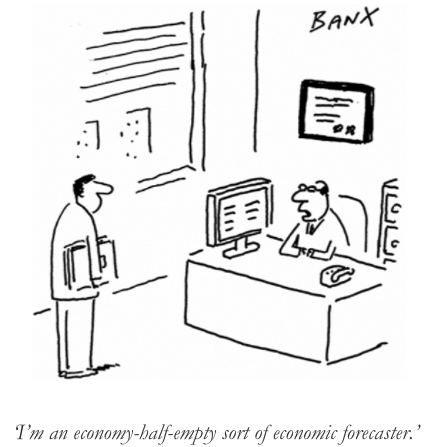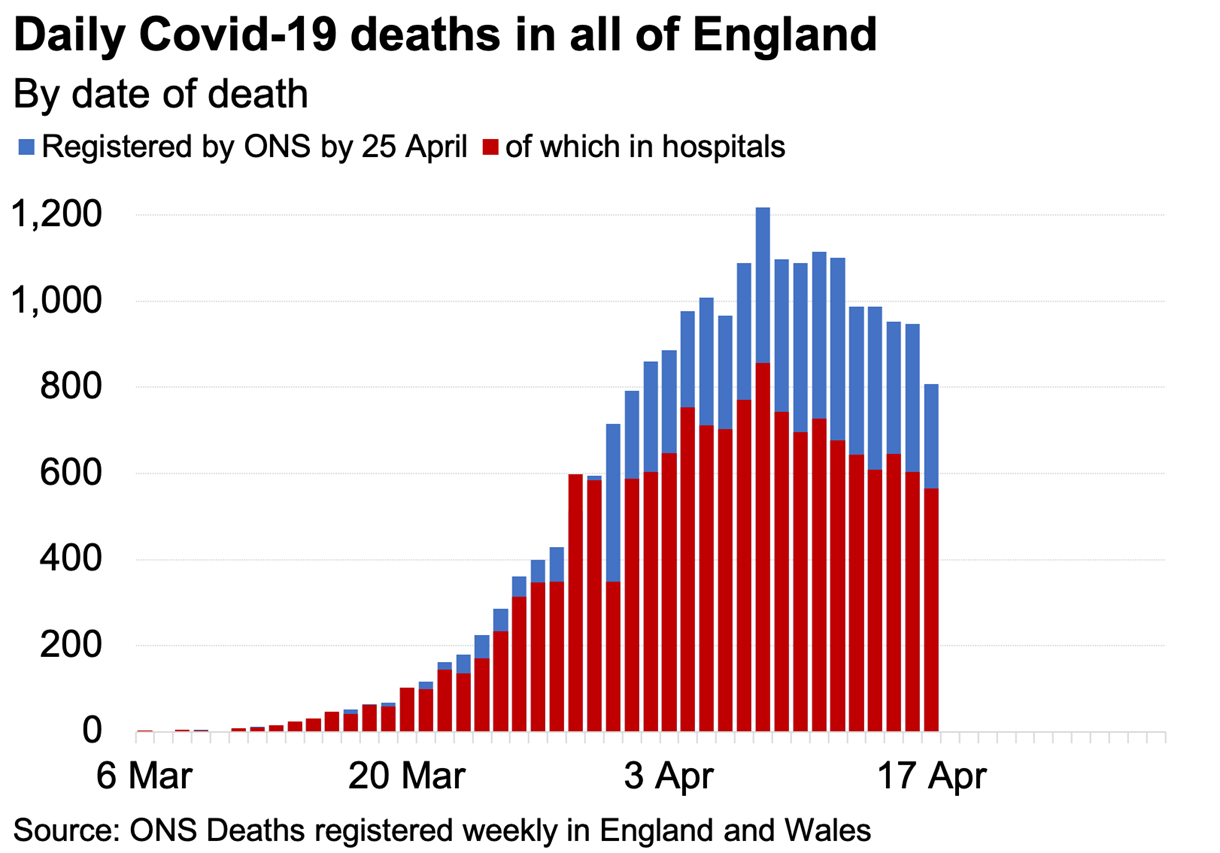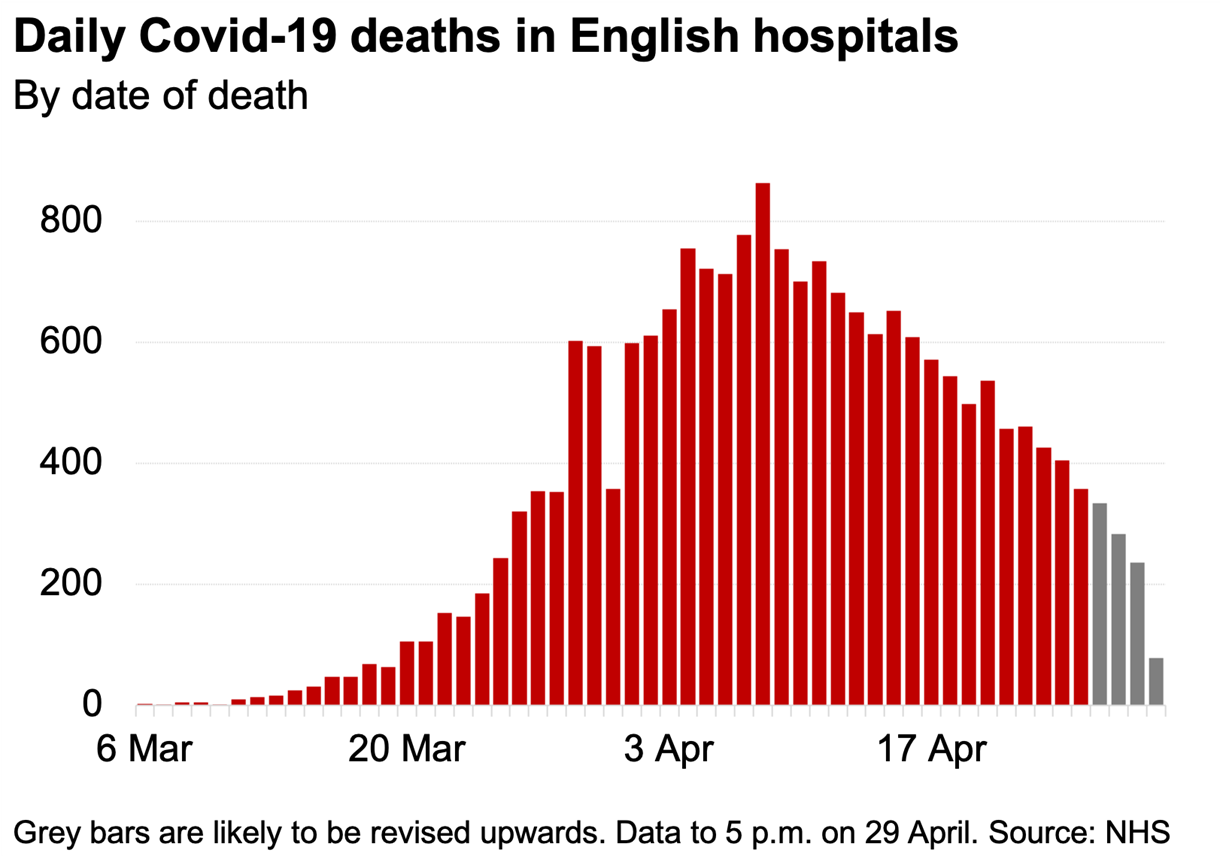The Spectator brings you the latest insight, news and research from the front line. Sign up here to receive this briefing daily by email, and stay abreast of developments both at home and abroad:
News and analysis
- The 277 South Korean Covid-19 ‘reinfection cases’ that originally prompted fears over multiple infections were in fact false positives, according to researchers at Seoul University. Ross Clark has the details below.
- We are past the peak according to Boris Johnson in his first coronavirus briefing since falling ill. The PM says he will release a road map next week for easing lockdown.
- The NHS will get ‘first dibs’ on any Covid-19 drug produced by Oxford university and AstraZeneca.
- The government is ‘either going to meet, or come very close’ to its 100,000 tests a day target, says Robert Jenrick.
- Three quarters of restaurants and bars will not be financially viable if forced to reduce customer numbers to maintain social distancing, according to evidence to be put before parliament today.
- The WHO has called Sweden the ‘future model’ for a post-lockdown society.
- Professional football in the UK next year could be played without crowds.
- Older actors could be banned from ITV dramas until social distancing measures have been dropped, according to the station’s boss.

Can patients catch the virus twice?
by Ross Clark
A week ago the World Health Organisation issued a warning which, if it were true, would constitute the most depressing development yet in the story of Covid-19: it said there was ‘no evidence’ that people who have already been infected with the disease, and who have developed antibodies as a result, have any immunity from further infection. The warning seemed to tally with news from South Korea that 277 people who had already had the disease appeared to have become reinfected. If antibodies to Sars-CoV-2 – the virus which causes Covid-19 – do not prevent further infection it would suggest that we could never develop herd immunity.
But now it seems that the Korean patients have not been reinfected at all. The country’s Central Clinical Committee of Emerging Disease Control says it believes that tests were not picking up newly-acquired infection – they were picking up fragments of dead virus from the original infection, the Korean Herald reports.
If infection from Covid-19 did not offer resistance against reinfection we would surely have some indication of this by now. According to the WHO a million people around the world have officially recovered from the virus – although the real number is likely to be many multiples of this. But few claimed cases of reinfection have emerged. While the WHO might technically be accurate in saying there is no evidence that Covid-19 sufferers develop an immunity from the disease – in that we don’t yet have a large population-wide study proving they do – there is no evidence that people are being reinfected, either. On the contrary, the absence of documented cases of reinfection indicates that sufferers most likely are gaining immunity.
Read Ross’s full blog on Coffee House.
In words
Sweden has set a very strong policy on public health, it is about physical distancing and how to protect the elderly in various nursing homes and much more… What it has done differently is it has very much relied on its relationship with its citizenry and the ability and willingness of its citizens to implement self-distancing and self-regulate… They have implemented public policy through that partnership… Sweden represents a future model if we want to return to a society that we do not have to close.
– Dr Mike Ryan, from the WHO emergencies team, addressing the idea that Sweden’s approach is to just let the virus spread.
We don’t have high confidence at all. There is a lot of uncertainty.
– Seth Flaxman of Imperial College London discussing modelling for the reproduction or R number.
What signal might it be sending out if we’re doing a show where everyone is crammed together slavering over each other, and the rest of the world is told not to go near anyone in the park?
– ITV boss Kevin Lygo on the possible cancellation of Love Island.

How will Britain exit lockdown?
At yesterday’s press conference, the Prime Minister said the ‘road map’ for Britain’s exit from lockdown would be announced next week. But it is unlikely to include specific dates or timelines. As James Forsyth revealed in his Spectator cover story this week, the government plans to follow a South Korean model, based on tracking and testing cases to contain the virus. This will require huge tech innovations and massive infrastructure to work properly – in other words, things that take time. The PM emphasised that it is data that will determine the easing of the lockdown: as long as the ‘R rate’, or the number of infections generated by each case, remains below one, the more it’s feasible to lift restrictions.
But will lockdown measures be determined only by data? As Fraser Nelson explains in his Telegraph column today, the R-figure is murky at best, and not even South Korea is relying on it fully to manage the Covid-19 spread. He notes that public opinion and political feasibility will likely play just a big a part in the decision-making process: ‘If public opinion is so firmly against ending lockdown, then it won’t matter what the R number is. The economy will not recover, commuters will not return and schools will stay empty. No. 10 is starting talks with trade unions to think of ways to encourage people back to work – but it’s hard, given that the selfsame No. 10 has spent the last few weeks telling people to “stay home, protect the NHS, save lives”.’ The Prime Minister has bought time with his new plan, as he and the experts can watch closely how lifting lockdown restrictions plays out in other countries. But fundamentally, any changes to the new status quo will likely take a combination of data reassurance, political will and public support to get day-to-day life moving again.
Global news
- Donald Trump has suggested that Covid-19 originated in a Wuhan lab, without providing evidence. The President has also threatened new tariffs against China.
- The spread of Covid-19 has not accelerated in Denmark since the country eased its lockdown, according to officials.
- 60% of all new Chinese cases over the past month have been asymptomatic at the time of testing.
- France will pay people up to €50 for bike repairs, in an effort to encourage cycling and avoid crowding after the lockdown.
- New York’s subway will close every night for disinfection.
- Beijing opened its parks today at 30% capacity.
- Malaysia will allow most businesses to reopen from Monday. Meanwhile, 31 out of 50 US states have begun to ease their lockdowns.
- An aquarium in Tokyo has asked people to FaceTime its lonely eels.
Datawatch
The PM announced in yesterday’s press conference that the UK had ‘passed the peak’ of the virus. Looking at the numbers by ‘date of death’, that appears to have happened weeks ago:


Our latest podcast
Research: Covid-19 vulnerabilities
Who is most susceptible to becoming seriously ill from Covid-19? Even when you account for underlying health conditions, there are still two traits emerging that make a person more vulnerable: being male and obese. Researchers at Imperial College London have found that ‘after adjusting for other medical problems such as lung, heart and kidney disease that are already known to cause poor outcomes, being male or obese (with a BMI over 30) is a significant factor associated with death in UK hospitals’. While it’s not yet clear why obesity is linked to such severe cases of Covid-19, one hypothesis from the researchers is that it leads to ‘reduced lung function and possibly more inflammation in adipose tissue – the fatty tissue under the skin and around internal organs’.
Coronomics
- 30 million Americans have now lost their jobs. The jobless toll stands at 18.4%.
- The European Central Bank is to expand its Covid-19 lending programme to banks beyond the €750 billion (£650 billion) already pledged.
- Amazon’s Q1 revenue jumped 26% to $75.4 as more people shop from home. But it may report a Q2 loss, as Covid-19-related costs – including safety – will more than account for its new profits.
- Retail stores Oasis and Warehouse will close permanently, leading to for 1,800 job losses.
- French car sales fell 89% in April.
- Ryanair expects to cut 3,000 jobs to cope with the pandemic.
More from The Spectator
Could the lockdown have side-effects no one has considered? – Dr John Lee
Boris Johnson’s cautious path out of lockdown – James Forsyth
Do face masks work? A note on the evidence – Dr John Lee
Why Covid cuts are off the cards – Katy Balls
Emmanuel Macron is experiencing the calm before the storm – Gavin Mortimer






Comments